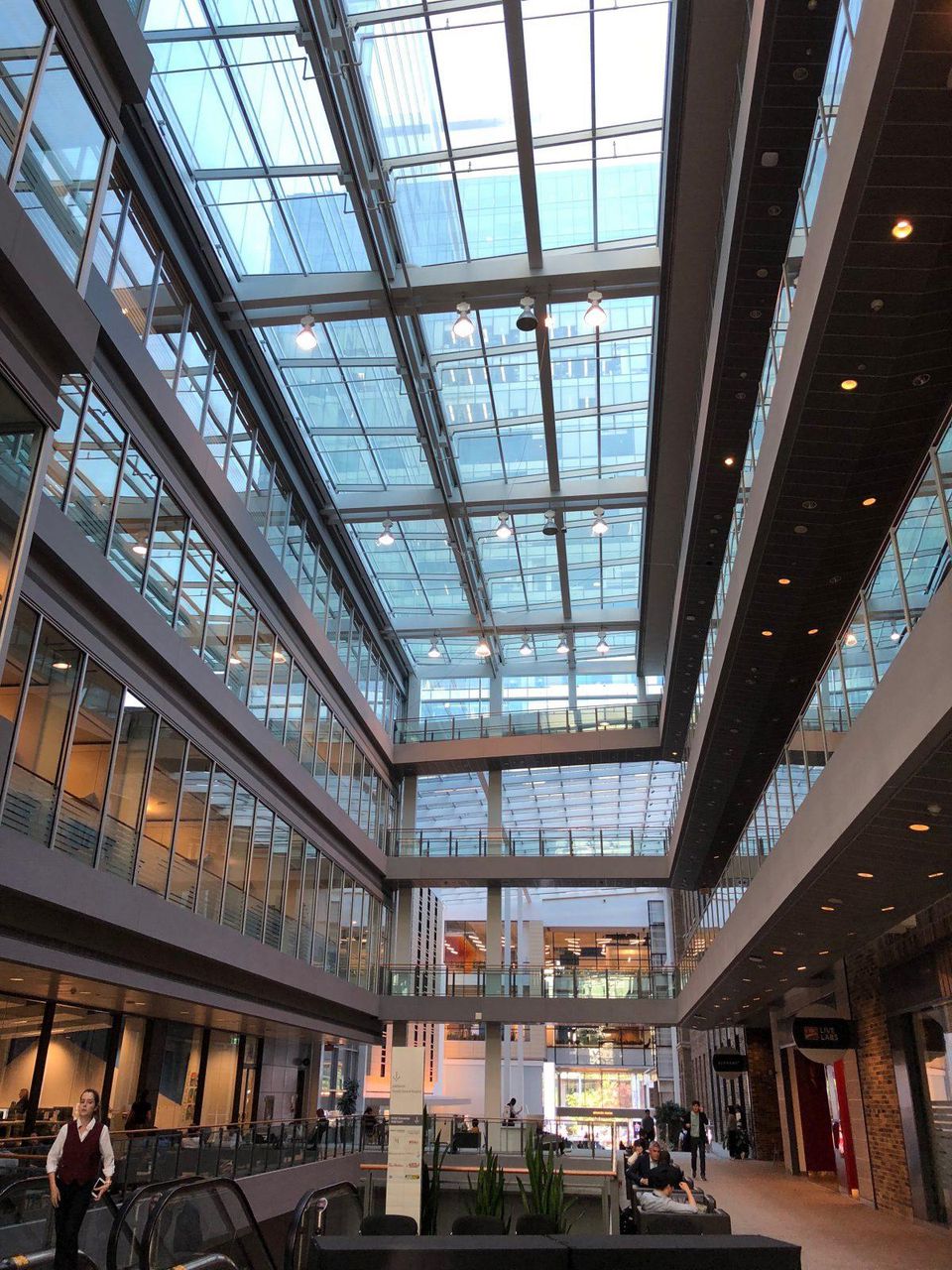MaRs Has Become One Of The Largest Incubators In North America, And It Is Not Based In Silicon Valley

MaRs Building in Toronto BIJAN KHOSRAVI
Walk down University Avenue in Toronto and you can practically feel the air pulsating with the energy of young engineers and entrepreneurs who call the area home. The coffee shops and buildings near the University of Toronto are filled with people brainstorming how to build and overcome the challenges of new companies. Conversations here are no different than those held by entrepreneurs in New York, Boston or the Silicon Valley, but these young people are part of something special. They have the backing of the Canadian government and the most influential business executives in the area. More than that, what sets these entrepreneurs apart from peers in other cities is MaRS—the largest incubator in North America.
MaRS, which isn’t an acronym, is changing the way cities all around Canada and across the globe think about incubators.MaRS, according to Lara Torvi, Manager of Media & Community, provides more than 1.5 million square feet of space in the heart of Toronto to connect the university, startups, corporations and investors. Some 150 organizations call it home and more than 6,000 people work there every day. MaRS, Torvi further noted, also supports startups virtually, bringing their portfolio to more than 1,200 high-potential ventures. In 2016 alone, companies associated with MaRS raised $867M from VCs and had $483M in revenue. The work the Canadian government and MaRS are doing together is a model other cities, countries and incubators should study closely.
As successful as MaRS is today, it had an uphill battle to get there. It was founded in 2005 in a section of Toronto that wasn’t a thriving location for businesses. The government funded the MaRS business plan, hoping it would give birth to a vibrant technology center. But in 2008 the U.S. economy crashed and brought down the entire global market. At the time, many politicians and business leaders criticized the MaRS plan and the people behind it. They argued that the cost was higher than the expected reward.
Fortunately, the founders stuck to their guns and, along with the continued support of the Canadian government, they were able to rise above the global financial crisis. The MaRS Board of Directors and management team is comprised of leaders in their industries. They are educators, researchers, social scientists, entrepreneurs and business experts. It was only because they fully believed in their long-term strategic plan that they succeeded. Incredibly, this plan was rooted in the foresight the Canadian government had to see that the path to economic prosperity was through technology development and becoming a leader in innovation.
Today, MaRS focuses on four technology segments that align closely with the Canadian government’s strategic plan: FinTech, Cleantech, Health and Enterprise. In addition to fostering connections and helping companies find funding, the incubator develops programs to further bring together the necessary stakeholders to drive change.
On the health front, MaRS created the Center for Impact Investing to open new funding streams for non-profits and create a more outcomes-oriented health system. It also established MaRS EXCITE to help health innovators navigate lengthy regulatory and reimbursement processes and enable them to get their products to patients and generate revenues faster.
The MaRS Solutions Lab has become the go-to source for policymakers in Canada and beyond struggling with the implications of the sharing economy and companies such as Airbnb and Uber. Meanwhile, the Advanced Energy Sector is tackling technological transformation in energy, particularly blockchain-enabled solutions for the electricity sector and energy storage opportunities. These initiatives are not only good for the incubator and companies it supports, they are also helping Canada meet its technology and innovation goals.
MaRS is also directly fostering Canada’s interest in diversity and inclusive innovation. Canada recognizes that some of the most brilliant minds are minorities, immigrants and women. The country encourages talented engineers and scientists from around the world to come and work there through a simple visa and citizenship process. MaRS is proud of it’s diverse base. According to Torvi, 56% of MaRS-supported ventures have at least one foreign-born founder.
The incubator also boasts a growing number of female founders. According to Michelle McBane, a senior investment director at MaRS, 28% of MaRS-supported ventures were founded by women. MaRS is working hard to keep this number climbing. To that end, McBane is starting a new fund exclusively for female entrepreneurs. Called “Stand-up Venture,” the fund has already done several deals across markets.
I asked McBane about how she helps female entrepreneurs get their start. She was very clear that product viability, a good business plan and support of an incubator are all important, but being involved in the startup community is even more important.
People like McBane are key to ending the uphill battle that many females face in the startup world—a battle that starts with the education system. Boys are more often encouraged to explore STEM than girls, so it’s important for incubators, such as MaRS, to build programs specifically around attracting and supporting women in technology and startups.




